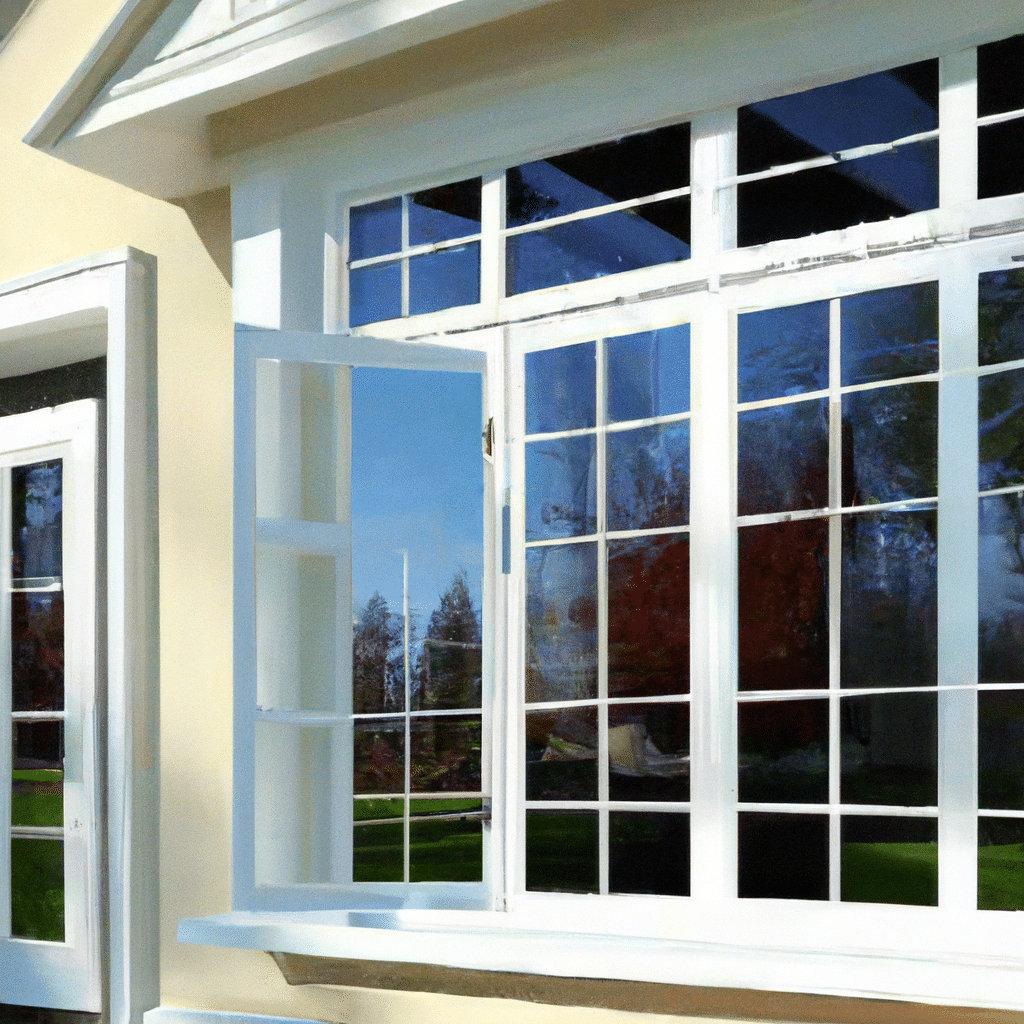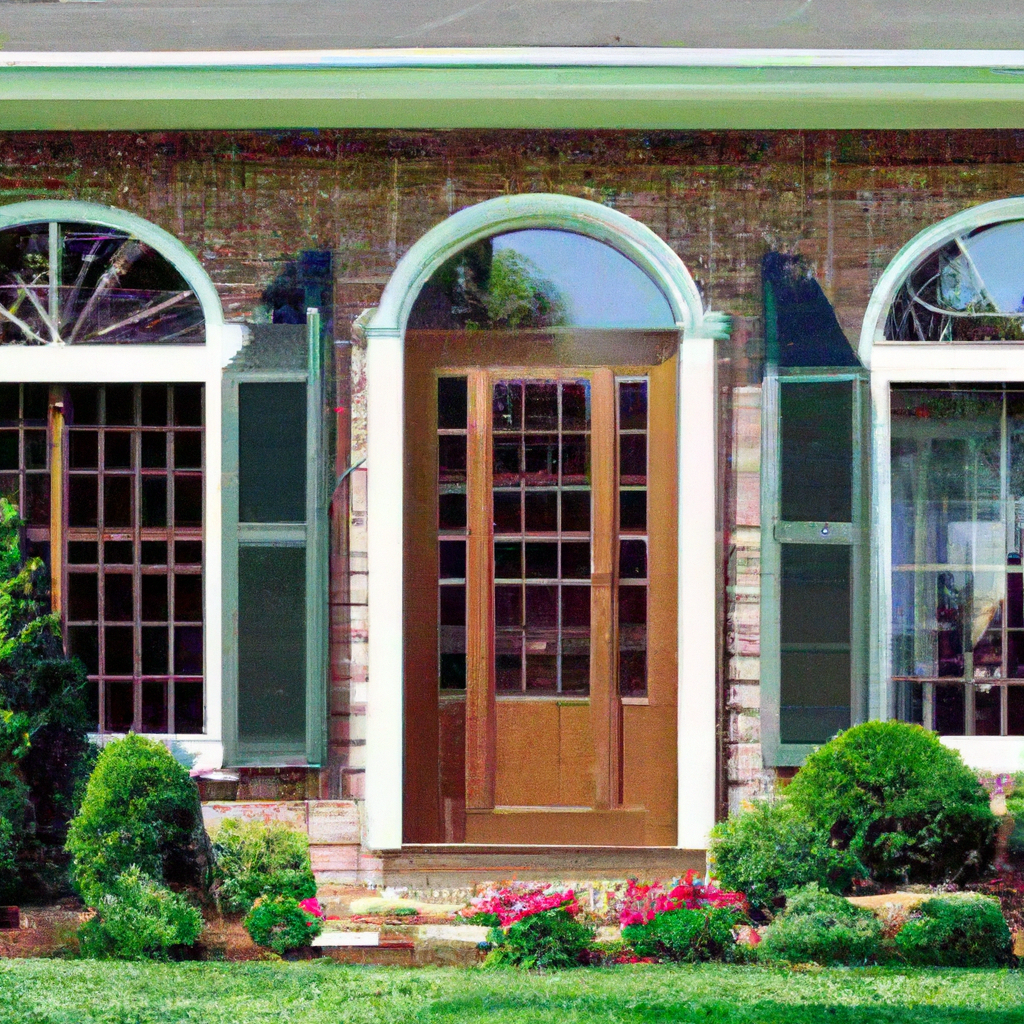So you’ve been thinking about installing impact windows in your home for added safety and protection. But before you jump into the project, you might be wondering if you need a permit to make this upgrade. Well, the answer is not so straightforward. While regulations can vary depending on your location, it’s important to check with your local building department or municipality to determine if a permit is required for installing impact windows. Taking the time to research and comply with any necessary permits will ensure that you are meeting the legal requirements and avoid any potential issues down the road.

This image is property of pixabay.com.
Overview of Impact Windows
Definition and Function
Impact windows, also known as hurricane windows or storm windows, are specially designed windows that are constructed to resist strong winds and flying debris during hurricanes or severe storms. These windows are made with laminated glass and reinforced framing materials, which provide increased protection against impact and breakage. Their primary function is to safeguard your home and its occupants from the destructive forces of hurricanes, strong winds, and storms.
Benefits of Impact Windows
There are several benefits to installing impact windows in your home. Firstly, they provide enhanced protection for you and your family during severe weather events by resisting the penetration of flying debris and minimizing the risk of shattering. Impact windows also help to minimize noise pollution by providing an additional layer of sound insulation compared to traditional windows. Additionally, these windows are energy-efficient, as they are designed to reduce heat transfer, resulting in lower energy bills. Impact windows can also enhance the security of your home, as the reinforced glass and framing materials make it more difficult for intruders to break into your property.
Costs and Considerations
While impact windows offer numerous benefits, it is essential to consider the costs before installing them. Impact windows tend to be more expensive than regular windows due to their specialized construction and materials. However, the long-term savings on energy bills and potential insurance discounts may offset the initial cost. It is important to assess your budget and compare quotes from different suppliers and contractors to ensure you are getting the best value for your investment. Additionally, it is crucial to consider the aesthetics of impact windows, as their appearance may differ from traditional windows. Some homeowners associations or historical districts may have specific requirements or restrictions regarding the installation of impact windows, so it is essential to research and understand any local regulations that may apply to your property.
Understanding Building Permits
Definition and Purpose
A building permit is an official document that grants legal authorization for a construction or renovation project. It serves as proof that your project complies with the local building codes, zoning regulations, and safety standards set by your municipality. The purpose of a building permit is to ensure that construction or renovation work is carried out in a safe and compliant manner, protecting both the occupants and the overall integrity of the structure.
When a Permit is Required
In most jurisdictions, a building permit is required for any significant alteration, construction, or renovation work that involves structural changes or electrical, plumbing, or mechanical systems. This includes the installation of impact windows, as they require modifications to the existing window openings and may involve structural reinforcements. It is crucial to check with your local building department to determine the specific requirements and whether a permit is necessary for your impact window installation project.
Types of Permits
Depending on the nature of the project, there are different types of permits that may be required. For impact window installations, the most common permits include building permits, which are necessary for structural changes or modifications, and mechanical permits, which are needed for any alterations to the electrical, plumbing, or mechanical systems related to the window installation. It is essential to understand the specific permit requirements in your area to ensure compliance with the local regulations.

This image is property of pixabay.com.
Permit Requirements for Impact Windows
Local Building Codes
When applying for a permit for impact window installation, it is crucial to adhere to the local building codes. Building codes vary between jurisdictions and are designed to regulate construction and ensure the safety and integrity of structures within the community. These codes may specify the minimum standards for wind resistance, impact resistance, and structural integrity that impact windows must meet. It is important to consult the local building department or the latest edition of the building code to understand the specific requirements and ensure compliance.
Scope of Work
When applying for a permit, it is necessary to provide detailed information about the scope of work for the impact window installation. This includes the dimensions and specifications of the windows, the method of installation, and any structural modifications necessary. The permit application may require drawings or plans that clearly show the proposed changes and how they comply with the local building codes. Providing accurate and comprehensive information will help expedite the permit review process and ensure that the installation meets the required standards.
Professional Installation
Many jurisdictions require impact window installations to be performed by licensed and insured contractors. Professional installation is crucial to ensure that the windows are properly installed, sealed, and anchored according to the manufacturer’s specifications and the local building codes. Hiring a licensed and experienced contractor will not only ensure the quality of the installation but also help you navigate the permit application process, as they are familiar with the local requirements and can assist in completing the necessary documentation.
Researching Local Regulations
Contacting Local Building Department
To understand the specific permit requirements for impact window installation in your area, it is essential to contact your local building department. They can provide you with the most up-to-date information on the documents, fees, and procedures involved in obtaining a permit. Building department officials can also answer any questions you may have regarding the scope of work, building codes, and other regulations that apply to your project. Engaging with the building department early in the planning process will help you navigate the permit application process efficiently.
Reviewing Zoning and Construction Guidelines
In addition to building codes, many municipalities have zoning regulations and construction guidelines that may impact the installation of impact windows. Zoning regulations dictate land use, setbacks, and restrictions on building height and size. It is essential to review these regulations to ensure that your impact window installation complies with the zoning requirements of your property. Construction guidelines provide additional guidance on building practices, materials, and design standards. Familiarizing yourself with these guidelines will help you understand any additional requirements or restrictions that may apply to your project.
Searching Online Resources
In some cases, you may be able to find resources and information regarding permit requirements for impact window installation on your local government’s website. Online resources such as permit application forms, checklists, and frequently asked questions can provide valuable guidance and streamline the permit application process. However, it is still recommended to contact the local building department directly for the most accurate and specific information regarding your project.

This image is property of pixabay.com.
The Permit Application Process
Documentation and Forms
The permit application process typically involves submitting various documents and forms to the local building department. These may include the completed permit application form, detailed drawings or plans of the impact window installation, engineering reports (if required), product specifications, and proof of contractor’s license and insurance. It is important to carefully review the permit application checklist provided by the building department and ensure that all required documentation is included with your application to avoid delays and potential rejections.
Fees and Payment
When applying for a permit, there are typically fees associated with the review and issuance of the permit. The fees vary depending on the jurisdiction and the scope of the project. It is important to inquire about the specific fees when contacting the building department to budget accordingly. Payment methods accepted by the building department, such as cash, check, or credit card, should also be confirmed to ensure a smooth application process.
Review and Approval
Once the permit application is submitted, it will undergo a review process by the building department. The review ensures that the proposal complies with the applicable building codes, zoning regulations, and safety standards. The review period may vary depending on the workload of the building department and the complexity of the project. Once the application is reviewed and approved, the permit will be issued, allowing you to proceed with the impact window installation. It is important to wait for the permit to be issued before starting any construction work to avoid penalties or fines.
Working with Licensed Contractors
Importance of Professional Installation
Professional installation of impact windows is crucial to ensure the windows’ proper function, performance, and compliance with the local regulations. Licensed contractors have the knowledge, skills, and experience to install impact windows correctly, ensuring that they are securely anchored, properly sealed, and meet the required wind and impact resistance standards. Professional installation not only provides peace of mind but also helps maintain the warranty of the windows, as improper installation may void manufacturer warranties.
Hiring a Licensed and Insured Contractor
When selecting a contractor for your impact window installation, it is essential to hire a licensed and insured professional. A contractor’s license indicates that they have met the necessary qualifications, such as passing relevant exams and demonstrating proficiency in their trade. Additionally, contractors should carry appropriate liability insurance and workers’ compensation coverage to protect you from any potential liabilities or accidents that may occur during the installation process. Before hiring a contractor, it is advisable to request proof of license and insurance and verify their credentials with the relevant licensing board or authorities.
Verifying Contractor Credentials
Before finalizing your decision, it is prudent to research and verify the credentials of the contractor you intend to hire. This includes checking their reputation and track record by reading reviews, asking for references, and reviewing past projects. It is also recommended to consult local consumer protection agencies or organizations to ensure that there are no complaints or legal actions against the contractor. By conducting thorough research, you can ensure that you are hiring a reliable and qualified professional for your impact window installation.

Possible Exemptions or Exceptions
Repair and Replacement Exceptions
In some jurisdictions, a building permit may not be required for impact window installations that are considered repairs or replacements. If the installation involves replacing existing windows with impact-resistant ones of the same size and design, without any structural modifications, a permit exemption may apply. However, it is important to confirm the specific requirements and restrictions with your local building department. Even if a permit exemption applies, it is still recommended to consult with a licensed contractor to ensure that the replacement windows meet the required standards and are installed correctly.
Historic or Conservancy Districts
If your property is located in a historic or conservancy district, there may be additional regulations and requirements regarding impact window installations. These districts aim to preserve the architectural and historical integrity of buildings within their boundaries. The installation of impact windows may be subject to specific design guidelines and approval from the district’s governing body. It is crucial to consult the local historic preservation office or conservancy district to understand the restrictions, application process, and any additional considerations for impact window installation within these districts.
Specific Impact Window Regulations
Certain jurisdictions may have specific regulations or certifications for impact windows beyond the general building codes. These regulations may establish minimum performance standards, testing requirements, or labeling criteria for impact windows. It is essential to research and understand these specific regulations to ensure that the impact windows you choose meet the local requirements. Choosing impact windows that are certified or tested to meet the specific regulations will provide assurance of their performance and compliance.
Consequences of Non-Compliance
Code Violation Penalties
Failure to obtain the necessary permits for impact window installation or non-compliance with the local regulations can result in severe consequences. Building departments have the authority to issue fines, penalties, or stop-work orders if they discover unpermitted or non-compliant construction projects. These penalties can vary depending on the jurisdiction but may include monetary fines, mandatory removal or modifications of the non-compliant work, or legal actions. It is important to comply with the permit requirements and adhere to the local building codes to avoid these potential consequences.
Inspection Failures
During the construction process, building departments conduct inspections to ensure that the work is being completed in compliance with the permit requirements and building codes. If the impact window installation fails the inspection, the building department may require corrections or modifications before granting approval. This can lead to additional expenses, delays, and re-inspection fees. It is crucial to work closely with your licensed contractor and building department to ensure that the impact window installation meets the required standards and passes all necessary inspections.
Legal and Financial Ramifications
Non-compliance with permit requirements and building codes can have legal and financial ramifications. In addition to potential fines and penalties, property owners may be held liable for any damages, injuries, or accidents caused by non-compliant installations. Insurance coverage may also be affected, as many insurance policies require compliance with local building codes and permit regulations. In the event of a claim, non-compliance may result in denial of coverage or reduced compensation. To protect yourself legally and financially, it is essential to obtain the necessary permits, comply with the local regulations, and ensure professional installation of impact windows.

Benefits of Obtaining a Permit
Ensuring Structural Safety
One of the primary benefits of obtaining a permit for impact window installation is the assurance of structural safety. Building departments review the proposed project to ensure that it complies with the necessary requirements and standards, including wind load resistance, structural integrity, and proper installation methods. By obtaining a permit, you can have confidence that the impact windows are installed correctly and will provide the intended protection during severe weather events.
Protecting Insurance Coverage
Many insurance companies require compliance with local building codes and regulations to provide coverage for property damage or loss. By obtaining the necessary permits for impact window installation, you can demonstrate that your property meets the required standards, potentially avoiding coverage disputes or claim denials. Additionally, impact windows may qualify for insurance discounts or premium reductions due to their enhanced protection against storms and burglaries. It is advisable to consult with your insurance provider to understand any potential benefits or requirements related to impact window installation.
Resale Value and Home Inspections
Obtaining permits for impact window installation can have a positive impact on the resale value of your property. Prospective buyers are likely to value the reassurance of proper permits and compliance with building codes, as it indicates that the property has been well-maintained and meets safety standards. Additionally, during home inspections, non-compliant installations may be flagged as potential issues, leading to negotiation or repair requests from buyers. By ensuring compliance through obtaining permits, you can avoid such complications and market your property as a safe and well-maintained home.
Conclusion
The installation of impact windows offers numerous benefits, including enhanced protection, energy efficiency, and security for your home. However, it is essential to recognize the importance of obtaining the necessary permits for impact window installation to comply with local building codes and regulations. By understanding the permit requirements, researching local regulations, and working with licensed contractors, you can ensure a safe and compliant project. Non-compliance with permit requirements can have severe consequences, including financial penalties, inspection failures, and potential legal liabilities. Obtaining a permit not only ensures structural safety and protects insurance coverage but also enhances the resale value of your property. By following the permit application process and adhering to the local regulations, you can enjoy the benefits of impact windows while maintaining a safe and compliant living environment.
